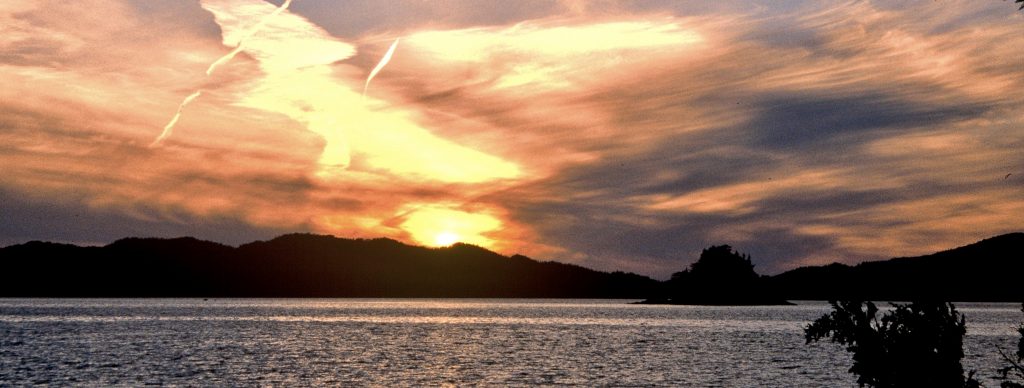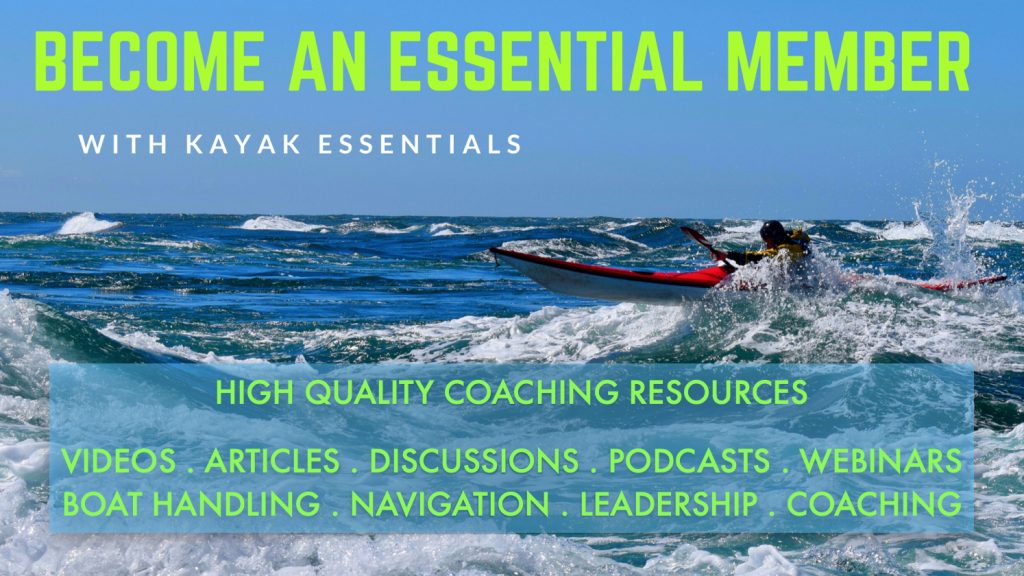In 1995 I spent three months sea kayaking in the wilderness environment of the Chonos Archipelago in southern Chile, as a volunteer sea kayak guide with the UK charity Raleigh International.
We spent much of our time in remote fiords between Puerto Aisen and the San Rafael glacier, scarcely seeing evidence of other human activity throughout the expedition.
In line with the Raleigh ethos, our group of twelve young adults carried no tents, relying instead on large nylon tarps strung each night in the forest edge, beneath which we huddled in individual bivi bags. We also carried no stoves, instead building small driftwood fires each day for warmth and meal preparation.
Between sea kayak travel, water collection, shelter construction and fire lighting, there was little time for relaxed contemplation of our situation.

During the last month of the expedition our routine was broken when we were stormbound on a tiny forested island in an outer area of the archipelago. Mid-crossing of a large fiord one morning, a storm system – moving quickly north from the Patagonian ice-field – created dangerous conditions for our group of relatively inexperienced paddlers. We diverted course to the nearest available landing, and reached the shelter of a small shingle beach beneath the dense forested hillside of our island sanctuary. We landed and settled down to wait.
The storm stalled over our location, a strong NW wind persisting throughout the day. With experience, we had become familiar with the local weather patterns and predicted that this weather might persist for some time. Indeed, we remained stormbound on our cramped beach for five days and nights.
As a group we were already used to social isolation, other than each other’s company. Our main challenge now was the breaking of familiar routines and the seemingly endless free time. With no external distractions – and no communication with the outside world – we filled time with camp chores, improving our living area, and the building of ‘sea defences’ to protect our precious camp fire from the advancing spring tides. Still, much of each day was relatively empty – hemmed between the rising water and the forest edge, we were also confined to a tiny area of the beach.

On the second day one enterprising group member strung up a metal mug with a length of cord, suspended it from the corner of a tarp, and began throwing small beach stones at the mug from a distance defined by a line in the sand. The game was on!
A handful of group members watched our newly-occupied teammate pinging pebbles at – and occasionally into – the swinging receptacle. Some drifted over and, like kids in a schoolyard, waited on their invitation to join in. Soon there was a gaggle of players, and a gathering knot of onlookers. Gentle competition emerged, rules were created, new challenges developed. Interest became enjoyment, enjoyment became commitment and soon – for some – obsession set in.
Another mug was strung, but rather than dividing the team, we now had practice / performance areas. Standards rose to impressive levels, then a tournament was agreed. The grand final was completed in near-darkness, after a marathon series of leagues, playoffs, and knockout rounds. When the storm finally abated, we excitedly packed our kayaks and, with a little sadness, took down our battered mug.
I’ve been reflecting on those stormbound days in Chile, while we endure this global lockdown. I realise that a number of factors were present.
Some group members quickly chose to play our new game, others watched a while before joining in, while some preferred to watch. A couple of group members paused in passing, but otherwise found their own ways to pass the time. There was no coercion to play, no consequence for (not) committing to the challenge. Everyone had autonomy over their actions; we recognised our freedom of choice, however much we bought into it in the moment.
We enjoyed the skill development opportunities that the game offered. It was tricky to hit the mug, let alone when it was swinging in the breeze. Landing a pebble in the mug was a huge challenge; keeping it in was even harder. No one knew how good we could become, and there was no absolute gauge of our level of performance – but the chance to improve was obvious to everyone. We enjoyed developing our competence in this novel activity.
After our pioneer first strung the mug, and after our ‘first followers’ created a joint enterprise, we gathered around, shared tips and techniques, offered feedback, encouraged and commented. We became a team of ‘pebble-muggers’; we bonded with the activity and with each other. We felt a sense of relatedness, with the game and with our companions.

Self-Determination Theory explores the importance of motivational climate in sporting settings, in the interaction between an activity, the participants and – often – the coach. The importance of three psychosocial needs emerge from the research around SDT:
Autonomy
Competence
Relatedness
There are interesting sources of online information, only a click away: get searching!
As soon as we are able to get afloat again, Matt and I will produce a series of paddlesport resources to explore these elements, from both a learning and coaching perspective.
During our stormbound incarceration, the mug game transformed our perception of the passage of time. We committed to an effortful, difficult pastime that took hours of practice to achieve incremental improvement in performance. We temporarily lost our sense of entrapment on the island, and gained great satisfaction from a repetitive, predictable activity. Lost in the game, we were happy in the moment.
Mihaly Cziksentmihalyi is a renowned expert on the psychology of optimal experience, and entered popular awareness his the publication of his seminal book, Flow.
In it, he discusses how, in a state of flow, people typically experience deep enjoyment, creativity, and a total involvement with life. He also shows ways that this positive state can be controlled, not simply left to chance. Cziksentmihalyi shares his conviction that, by ordering the information that enters our consciousness, we can enhance our sense of happiness and improve the quality of our lives.
Applying these principles to our paddling adventures, the principles of Flow can resonate.
We can recall moments afloat when we feel balanced and connected with our craft, the challenge, our skill and focus on a desired outcome. We become centred in the moment, present and entirely absorbed by the experience. We also gain satisfaction from our skilled performance of this discretionary pastime.
If we can encounter Flow with a swinging mug, the potential in our paddling is enormous!
Csikszentmihalyi, M. (2008) – Flow: The Psychology of Optimal Experience (1st ed.)
New York, NY: HarperCollins – ISBN 978-0-06-133920-2
Flow is also available as an audiobook.

